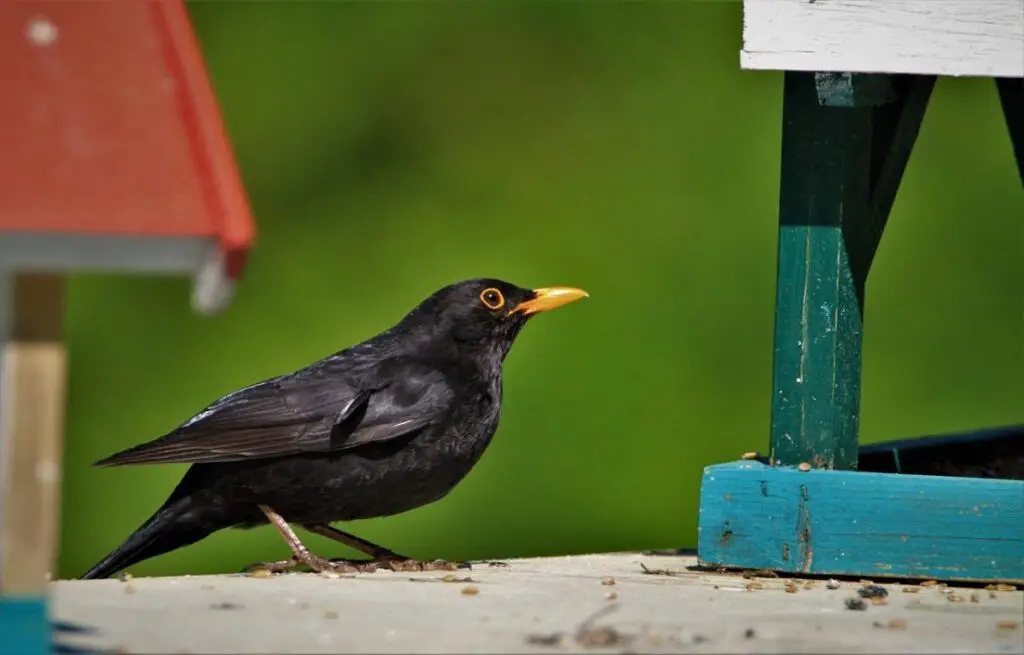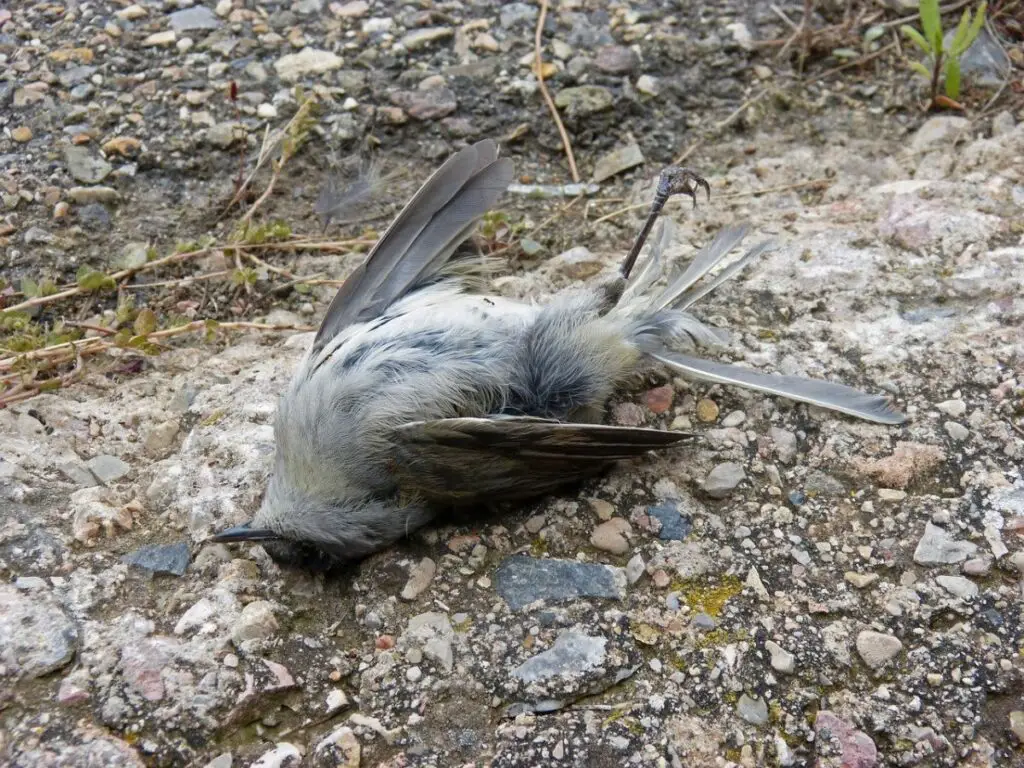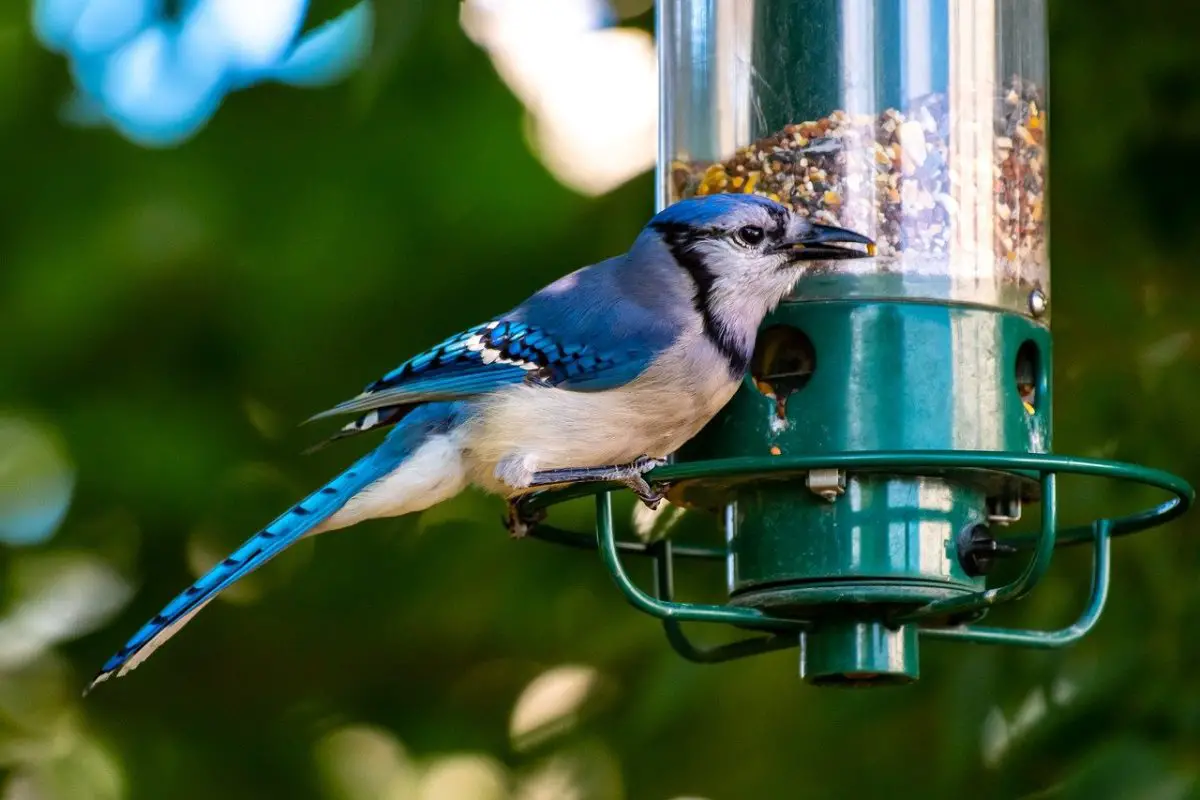The Department of Natural Resource units in Minnesota, Indiana, and Michigan ask backyard bird feeder enthusiasts not to place their feeders up this year. This makes the second year in a row that State DNRs have asked residents to halt the practice of placing Michigan bird feeders. This “flu: looks to have spread all over the US so it will affect feeding birds in Michigan.
Media outlets are reporting that State officials confirmed last week that bird flu had been detected in birds in Livingston, St. Clair, Kalamazoo, Macomb, and Menominee counties. The strain is highly deadly to poultry, such as chickens and turkeys, so the procedure is to destroy the entire flock to prevent the spread.
University of Minnesota’s Raptor Center recommends that you take down your bird feeders this spring to slow the spread from bird to bird. Free-range raptors and other scavenging birds (gulls, ravens, crows) are susceptible to high pathogenic avian influenza (HPAI) and become infected after ingesting infected waterfowl. HPAI is often fatal in these preying birds.
Why Stop Feeding Birds In Michigan? What is Going On?
Avian influenza, sometimes known as bird flu, is a type A influenza virus found in wild waterbirds (ducks, geese, swans, and shorebirds) and domestic poultry. Other avian and animal species, however, are susceptible to infection. Although songbirds are not commonly infected with this influenza, it is plausible that it may be spread through backyard bird feeders. This year, the DNR advises against using the feeders. Birds will be able to discover food sources when the temperature warms. The DNR recommends that homeowners who raise backyard flocks, such as hens or turkeys, keep a close eye on how they feed their birds.
This Does Not Mean Bird Feeders are Banned
The Michigan DNR is not banning Michigan bird feeders, and not everyone wants to take their bird feeder down. However, if you plan to keep them up, it’s recommended that you institute a daily cleaning of a feeder with a diluted bleach solution.
What if You Notice Several Bird Deaths – What To Do
If you come across a wild bird you suspect could be infected with HPAI, call the DNR and don’t touch them, especially if you have birds at home, as the virus is highly transmissible.
Residents should contact the DNR via the Eyes in the Field app or by calling 517-336-5030 if they detect the death of three or more free-ranging birds. If you have a serious disease or multiple mortality losses in your domestic poultry, call MDARD at 800-292-3939.
In 2021 Michigan Was surrounded by States Asking Residents to Stop Feeding Birds Due to Neurological Issues.

Last year it started as a slight warning. Both Washington State and Michigan DNR asked to watch for an unusual die-off of wild songbirds. It has snowballed into a multi-state request to ask birdwatchers across the east coast and Great Lakes region to stop feeding the wild birds that we enjoy welcoming every summer season at our Michigan bird feeders.
The Natual Resource Departments of the Mid-Atlantic States, Ohio, Pennsylvania, and Indiana asked residents to suspend bid feeding in the summer of 2021.
The New York Buffalo Audubon Society had been receiving calls from residents querying about the die-off of birds in these states. The Society observed the most deaths in starlings, grackles, blue jays, and robins.
The Virginia Department of Wildlife Resources encouraged homeowners to take down bird feeders and birdbaths as officials struggle to solve the mystery of infected and dying birds.
Symptoms Were Evident

A media spokesperson with the Kentucky Department of Fish and Wildlife said the state began receiving calls about “sick and dying birds. They had eye swelling and crusty discharge” in late early summer. The birds behave as if they’re blind before dying.
In Indiana, infected birds, found in 15 counties, showed eye swelling. In addition, there is crusty discharge and neurological signs of illness. WKBW out of New York reports that Tom Kerr of the Buffalo Audubon Society says not to worry about birds getting enough food this summer. “The Audubon Society is advising that we take down our bird feeders until we find out what is causing this or it ends,” Kerr said. “They’ll come to your bird feeder as a supplementary food supply, but most birds eat bugs this time of year.”
So far, no reported cases of the illness have been reported in Michigan. However, reports from the Indiana border towns of St. Joseph, Elkhart, and LaPorte, place it within the realm of affecting Michigan bird feeders soon.
If you have to dispose of a dead bird, officials said to place the bird into a sealed plastic bag and dispose of it in a secured outdoor trash can. Wash hands and any other surface to prevent reinfection.
Related Reading Michigan Bird Feeders
- 11 Tips To Attract Hummingbirds and Orioles to Your Yard This Summer – The ability to attract orioles to your yard is fun and easy. April and May are big bird months in the Great Lakes region.
- Put Out Winter Feeders, But Beware of Sick Birds – This year, Michigan is experiencing a rare irruption – a sudden, sharp increase of a natural population due to favorable changes in the environment – of northern finches. Common redpolls, pine siskins, and evening grosbeaks have arrived in record numbers searching for cone and seed crops across the state.
- 7 Michigan Bird Feeder Types Every Cabin and Cottage Birder Must Know – If you have lived or have a cottage in Michigan’s Thumb or a cabin in Northern Michigan, there is almost no way you can get away with not having a bird feeder during the summer months.
- 14 Best Oriole Feeder Tips & A Simple Hummingbird Nectar Recipe – Offer Clear Sugar Solution for Oriole Nectar – We use the same recipe for both orioles and hummingbirds.





Just read this. It may be a answer to the concerning death of song birds.
https://www.ithaca.com/news/ithaca/cornell-experts-not-overly-alarmed-by-mysterious-songbird-sickness/article_ae73fa12-efc6-11eb-9a3f-ef82b40e923f.html?fbclid=IwAR1erkxDObnmchN2czWj2IeUh2PAPDeDXV5pYwgZf6Nohy2qrQsTjzi4UD8
I live in Michigan and I’ve seen two birds that have had eyes that are crusted shut. Are we sure it’s not the food that is causing this?
I live in Michigan too (Rockford). Today I found two birds in my yard that we’re acting sick and had crusty eyes. Should we be taking down all our feeders and emptying out birdbaths? I can’t find any updates regarding this situation on the Michigan DNR website.